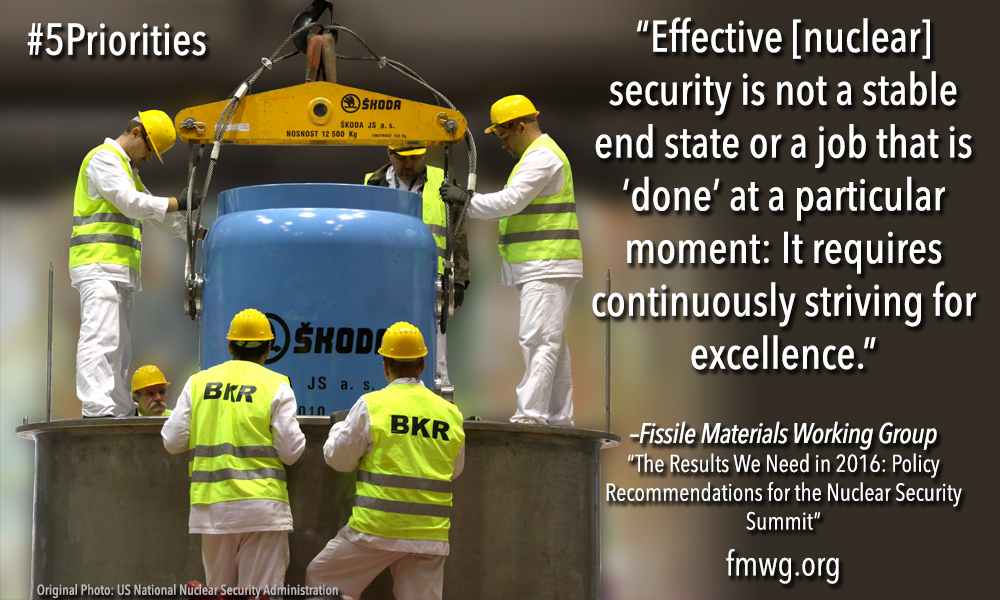“A Culture of Security”
Igor Khripunov from the University of Georgia School of Public and International Affairs has published a new article in the Bulletin of the Atomic Scientists about how important it is for the world that our leaders make major progress at the 2016 Nuclear Security Summit.
Highlighting our recent report outlining policy recommendations for the 2016 NSS, Khripunov emphasizes that we need to go beyond physically protecting and tracking dangerous nuclear materials, to create an ongoing and sustainable “culture of security” that can evolve to adapt to new threats and new dangers quickly and efficiently:
But a funny thing happened on the way to the forum: It turns out that there is more to ensuring the security of nuclear material than physically protecting it, or trying to account for the whereabouts of every last bit of, say, highly enriched uranium. There is also something a bit harder to define, but perhaps even more important: a broader, all-embracing culture of nuclear security, that takes into account the human factor. Known as nuclear security culture, this approach encompasses programs on personnel reliability and training, illicit trafficking interception, customs and border security, export control, and IT security, to name just a few. Security culture has become a bit of a buzzword in many security-related domains, and the FMWG report seeks to raise it above this level, explicitly detailing the concept and its implications in a special section.
Read the whole article from Khripunov, and share it with your friends and family!
The Results We Need in 2016
The risk of terrorists obtaining the materials to build a nuclear bomb or a radioactive “dirty” bomb is one of the greatest dangers facing the global community.
The 2016 Nuclear Security Summit (NSS) must result in bold, concrete commitments that will keep the world safe from nuclear terrorism. To help achieve this goal, a group of international nuclear security experts developed recommendations that can help prevent such a tragedy.
We’ve collected these recommendations into a report, The Results We Need in 2016: Policy Recommendations for the Nuclear Security Summit (PDF).
Please read the report (PDF), and share this graphic with your family and friends to keep nuclear security at the forefront of our leaders’ attention:
The 5 Priorities at the National Press Club
The 5 Priorities accompanied the International Convention on Nuclear Security (ICNS) and the Progress Report on Joint Statements at “Nuclear Security Beyond Summits” on March 24th, 2015 at the National Press Club.
For more information about the ICNS and the Progress Report on Joint Statements, visit www.partnershipforglobalsecurity.org.
5 Priorities: Now available in 9 languages!
The 5 Priorities have now been translated into nine languages: Dutch, English, French, German, Korean, Russian, Spanish, Swedish, and Turkish!
You can download a printable copy of the 5 Priorities in any of those nine languages here.
Stopping a Nuclear Nightmare: How We Can Secure Loose Nuclear Materials
The co-chair of the Fissile Materials Working Group (the organization that sponsors the 5 Priorities) has a new op-ed in National Interest magazine, laying out what needs to happen at the 2016 Nuclear Security Summit:
U.S. leadership is essential for addressing these problems. The three previous gatherings have yielded important results, in particular the accelerated removal of bomb-grade materials from a variety of countries. But many of the accomplishments plucked low-hanging fruit.
Read the whole article here and share with your friends on your social networks!


